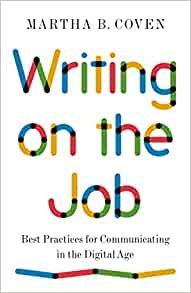In preparation for a course on blogging that I ran recently, I wanted to see how far I could get using AI tools to help me with my intended audience, outlining a post and drafting a whole article. In this first part I report on using ChatGPT to create a few personas.
Read MoreGenerative AI experiments 1
A development that I think is potentially interesting is the embedding of generative AI in the tools we already use.
Read MoreThe scream by Terry Freedman
Is your website contributing to AI bots?
I checked if my websites had been scraped, and this what I discovered…
Read MoreReview of the hieroglyphs exhibition
Taking place at the British Museum in London, the exhibition could be used to provide interesting perspectives or links to several subjects — including programming.
Read MoreCan ChatGPT write decent course outlines?
I’ve been experimenting with using ChatGPT to write course outlines, and for one of the courses I compared the result with the outlines I had already written (and taught to). The results were interesting.
Read MoreSection of an artcile records spreadsheet, by Terry Freedman
Using ChatGPT as a search engine
Although I haven’t been overly impressed with ChatGPT as a creative force, I have to say that I am impressed with it as an alternative to Google.
Read MoreBack to the future: a data security issue? Updated
An interesting and lighthearted look at some of the problems arising from the Back to the Future movies.
Read MoreFirewall Foibles, And How I Survived Them Revisited
It was when my wireless router told me that there was no printer on the network that I finally flipped.
Read MoreSomeone suffering from FOMO, by Terry Freedman
7 incredibly useful links
These links were first highlighted in the Digital Education newsletter.
Read MoreImage by Megan Rexazin from Pixabay
Don't insult my students!
I used a computer simulation called Running the British Economy, which I sort of changed to Ruining the British Economy. The aim of the simulation, as envisaged by its creators, was to create a situation in which the economy was running really well. Based on the Treasury economic model, it was ideal for showing in real time the effects of pursuing various macroeconomic policies.
Read MoreReview: Writing on the Job: Best Practices for Communicating in the Digital Age
What's the best way of constructing an email, especially if you want the recipient to do something? If you’re a teacher or presenter, how should you approach the writing of a slide- based presentation?
Read MoreCustom Wordle, by Terry Freedman
The Case For Word Puzzles (Updated)
Used sensibly, creatively and as part of an array of resources, word puzzles can supplement your teaching very well.
Read MoreImage by OpenClipart-Vectors from Pixabay
Lessons from the world of sports: #5 The rule of encouragement (Updated)
How important is encouragement to Olympic class athletes? I’d like to start off with an admission of error….
Read MoreImage by OpenClipart-Vectors from Pixabay
Lessons from the world of sports: #4 The rule of expert guidance (Updated)
A conversation that has never taken place, and probably will never take place.
Read MoreWhat if "she" decided whether or not you got the job?
8 ideas for story-writing in Computing
Here are 8 ideas for encouraging pupils to write stories on Computing and related topics.
Read MoreImage by OpenClipart-Vectors from Pixabay
Lessons from the world of sports: #3 The rule of eclecticism (Updated)
I’ve called today’s rule the rule of eclecticism because it’s about learning from different, and disparate, disciplines.
Read MoreImage by OpenClipart-Vectors from Pixabay
Lessons from the world of sports: #2 The rule of detailed analysis (Updated)
Anyone who voluntarily leaps off a board which is 10 metres high – imaging three double-decker buses stacked on top of each other with a car balancing on top – has to be nuts. That’s not me saying that, but Leon Taylor…
Read MoreImage by OpenClipart-Vectors from Pixabay
Lessons from the world of sports: #1 The 1% improvement rule (Updated)
Small, perhaps seemingly insignificant, improvements can make a big difference.
Read MoreScreenshot of part of the People Database, by Terry Freedman
An interesting way to make use of pivot tables
Pivot tables help you to see possible questions that might otherwise have remained hidden.
Read MoreAmazon Study
Amazon has launched Amazon Study. It comprises free resources in maths and science for different age groups.
Read More













